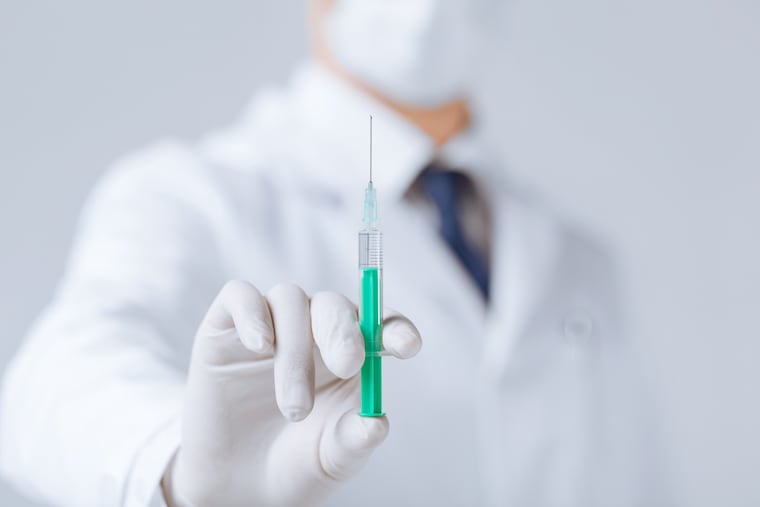‘First, do harm’: When your doctor can’t help but hurt you
To do my job, I cannot avoid causing patients pain, but I hope I can constantly remind myself of its power.

Yes, it will hurt, I admit. It’s a pinch and burn. You’ll feel it. You won’t like it. But, I jokingly try to reassure, we’ll still be friends.
This is how I prepare patients for the pain of an anesthetic lidocaine injection. My hope is that I can communicate the expected discomfort, while at the same time acknowledging how unavoidable pain is and not seem dismissive.
Patients often recognize the irony in how we must inflict a certain degree of pain in order to ensure that the procedure itself is painless. And I will go to extra effort to minimize it. I use distraction, intentionally engaging patients in conversation on other topics to relieve some anxiety. We also buffer our lidocaine with sodium bicarbonate and use the smallest needle we have, techniques that both definitely reduce pain. For some injections, I’ll even add a topical spray or prescribe a topical anesthetic ahead of time.
Still, in the end, I worry about becoming numb to my patients’ pain. As a dermatologist, my days are filled with biopsies, injections, excisions, and the like. The more I inject my patients or freeze my patients with liquid nitrogen cryotherapy (with a measured temperature of negative 196 degrees), the more inflicting pain is normalized behavior for me. I might feel reflexively dismissive of patients who complain more than I think they should. Could constant exposure to inflicting pain make me lose empathy?
Pain is a funny thing. Some patients cry bloody murder and yet the needle hasn’t even touched their skin. Others will be so oblivious to the procedure that at the end, they will ask me, when are you going to start? Specific areas of the body are known to have a greater density of sensory nerves — for instance, the hands, feet, face, genitals. As far as the brain is concerned, a single fingertip might be almost as sensitive as the entire back.
I try not to bring assumptions about people based on appearance. For instance, you might assume a patient with lots of tattoos can handle needles without a problem. Yet some have real needle phobias, and tattooing seems a means to tackle their fears head on.
With respect to gender and race, there are even more assumptions I must make sure to confront. From research, we know that pain reported from women and people of color tends to be believed less by doctors. In fact, in the opioid epidemic, there’s poetic justice in the fact that African Americans are less likely than whites to have developed a pill addiction. Because so many doctors don’t trust their pain, African Americans aren’t prescribed opioids as much, and so don’t develop as much dependency. This difference has even been observed in children suffering from appendicitis. This knowledge makes me try my best to be keenly aware of my own biases.
One of my biases, I’ve found, is for speed over pain relief.
Occasionally, despite all efforts to prevent it, there comes a moment in the middle of a procedure when the patient, who I thought received sufficient anesthesia, indicates that there is pain. In that moment, I have a choice. I can pause the procedure for additional anesthesia. However, this may itself cause some pain, and it may prolong the procedure, which can be painful. Alternatively, I can plow through, deciding that whatever pain they are experiencing is reasonable to bear, and it’s better to be done than wait for the perfect numbing. If I choose the latter, am I heartless? Pragmatic? Sadistic? Sensible? All of the above?
Thinking back on years of inflicting pain on a daily basis, the best I can offer is that pain must be respected. It’s sad that, to do my job, I cannot avoid causing patients pain, but I hope I can constantly remind myself of its power. Thus, despite my best efforts to help my patients, and no matter what the Hippocratic oath may say, sometimes, first, I do harm.
Jules Lipoff is an assistant professor of dermatology at the University of Pennsylvania Perelman School of Medicine.